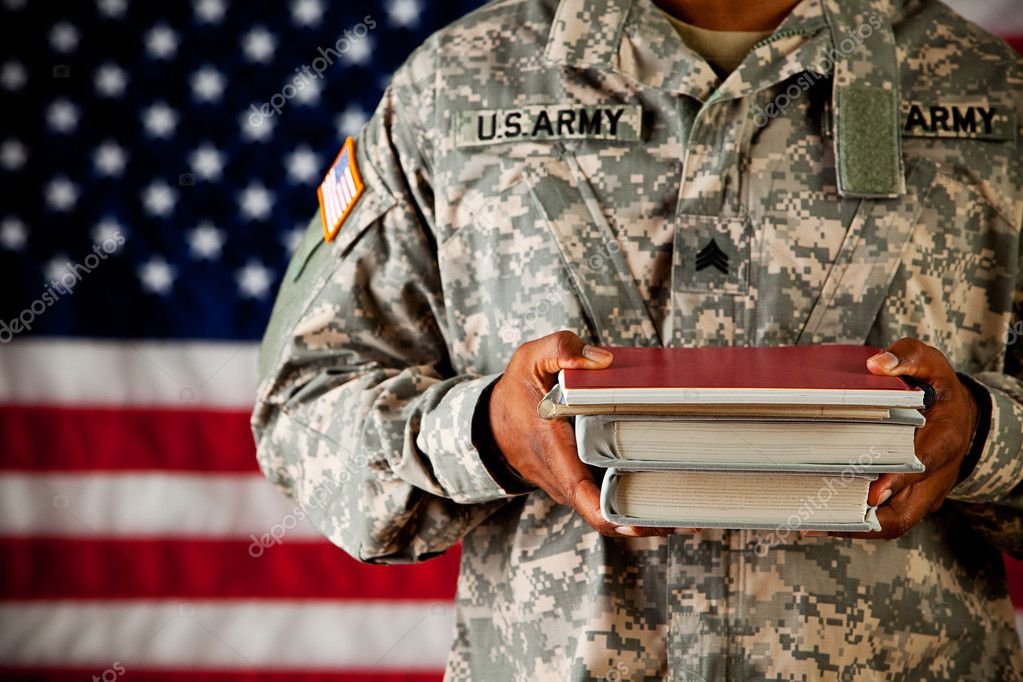5 Tips for Military to College Transition
Transitioning from active duty military service to a full-time student can be a culture shock. For many the first question is, “Where do I even start?” From understanding G.I Bill benefits that can be complex and daunting to deciding the best schools to apply to, the decision to go to school after your time in service can be overwhelming.
Working with veterans every day allowed us to compile a few key takeaways that will support your transition from the military to school.

5 Tips for Military to College Transition
1. Identify your interests & long-term goals
College is an expensive and time-consuming journey, so it is essential to clearly define your goals as early in the process as possible. Starting college with a mindset of taking classes and figuring out what you’d like to do along the way can be a costly approach. Without a clear goal in mind, you might find you’ve used up some of your education benefits and are now taking classes that won’t transfer or fulfill degree requirements. Ask yourself these questions:
- What career and/or job title are you looking for?
- What degrees/courses of study will help you achieve your career goals?
- What does the curriculum for the program look like? Are you excited about the classes?
- Will your career choice require additional education and/or an advanced degree, such as a master’s or doctorate?
- Do you aspire to live in any specific places or areas? What does the job market for your career look like where you’d like to live?
- What is the job outlook for your aspiring career in the next 5, 10, even 20 years?
Find a school and degree path that matches your interests, academic strengths, and career goals so you are always working towards your goals and are better equipped to stick with your academic program.
2. Find out & understand what veteran benefits you qualify for
Aside from the well-known GI Bill, there are many educational benefits you may qualify for such as scholarships and school-specific financial aid programs. A financial aid office that is well-versed and knowledgeable about veteran benefits will serve you well by helping you navigate the entire process.
Key items to pay attention to when learning about your benefit options include credit or cost limits, deadlines, any payments you may be expected to make, or exclusions for school-related expenses like housing or books. Be sure to also consider whether a potential school you are interested in is the best fit for you if they don’t have a solid understanding of military students and your education benefits.
3. Make a plan to achieve your desired success
This may seem like a fairly obvious point, but it may be a little trickier to accomplish than what meets the eye. The military provides specific direction and structure necessary to accomplish the mission; in the civilian world, that responsibility falls on your own shoulders. You will need to identify your own application requirements, create deadlines for yourself, and commit to a schedule that will allow you to stay committed on your educational path. We’ve created a college application tracker to help you plan for your success.
4. Take care of your physical and mental health
Transitioning from the military to the civilian world can be challenging without the right support. Many military-friendly schools offer veteran success programs that are dedicated to providing veteran-specific resources, such as mental health counseling, hands-on educational support, peer mentorship, and more. Some veterans centers may have an established partnership with the local Department of Veterans Affairs near the school or have connections to provide referrals for you to get the support you need.
Self-care isn’t just about treating yourself when times are tough; it’s about taking care of yourself every day to help alleviate the tough times when they arise. Create a routine for yourself that promotes healthy habits, such as getting plenty of sleep, exercise, and proper nutrition, which will all help you stay at the top of your educational game.
5. Join a veteran community or mentorship program
Having a strong community at college can enhance your experience overall, providing you with a support system that knows what you’re going through. They’ve been in your shoes and can relate to your successes in ways civilian students cannot, and they are in a prime position to share insights into making the transition easier.
You have what it takes to succeed so believe in yourself & pursue your dreams.
Your time in the military has shown that you are no stranger to tackling big challenges and powering through obstacles. These obstacles were designed to test your endurance and dedication and undoubtedly helped shape you. If obtaining a college degree is your goal, you are already equipped to conquer your dreams.
Service to School offers FREE virtual college admissions mentorship for veterans and service members. Sign-up today to start your journey toward “AdmissionAccomplished!”

